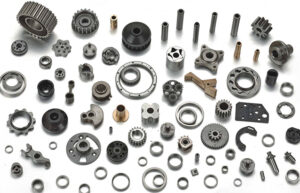Laser marking technology has gained popularity in various industries due to its high precision and versatility. It has become a preferred method for marking on different materials, including metal, plastic, and ceramics. One important application of laser marking is in the industrial sector for marking components. This article aims to explore whether a laser marking machine is suitable for marking industrial components.
One of the key advantages of laser marking machines is their ability to achieve incredibly detailed and permanent markings. The laser beam creates high-intensity heat, which leads to a material reaction, resulting in marking the surface without affecting the integrity of the component. This makes laser marking ideal for industries that require durability and tamper-proof markings on their components, such as automotive, aerospace, and electronics.
Another significant advantage of laser technology is its ability to mark different types of materials. Whether it’s metal, plastic, or ceramic, laser marking can produce clear and precise marks on a variety of surfaces. This ensures that the markings remain legible even under extreme conditions, such as high temperatures or corrosive environments.
Laser marking machines offer excellent flexibility and customization options. The laser technology allows for the engraving of text, numbers, logos, barcodes, and even complex designs with high accuracy. This flexibility is particularly beneficial for the industrial sector, where components often require unique identification or traceability markings.
Furthermore, laser marking machines are capable of achieving high-speed marking, making them suitable for large-scale production environments. With their automated systems, laser marking machines can efficiently mark a significant number of components within a short period. This high throughput capability is crucial for industries that require fast and efficient marking processes to meet production deadlines.
While laser marking machines offer numerous advantages, there are a few considerations to keep in mind. The initial cost of acquiring a laser marking machine may be relatively higher compared to traditional marking methods. Additionally, regular maintenance and periodic replacement of laser components are necessary to ensure consistent and accurate markings.
In conclusion, the use of a laser marking machine is highly suitable for marking industrial components. Its precision, versatility, durability, and high-speed capabilities make it an ideal choice for industries that require permanent and customised markings on different materials. Although there is an initial investment and ongoing maintenance involved, the long-term benefits outweigh the costs. Overall, the implementation of laser marking technology in the industrial sector can significantly enhance efficiency, productivity, and product quality.

